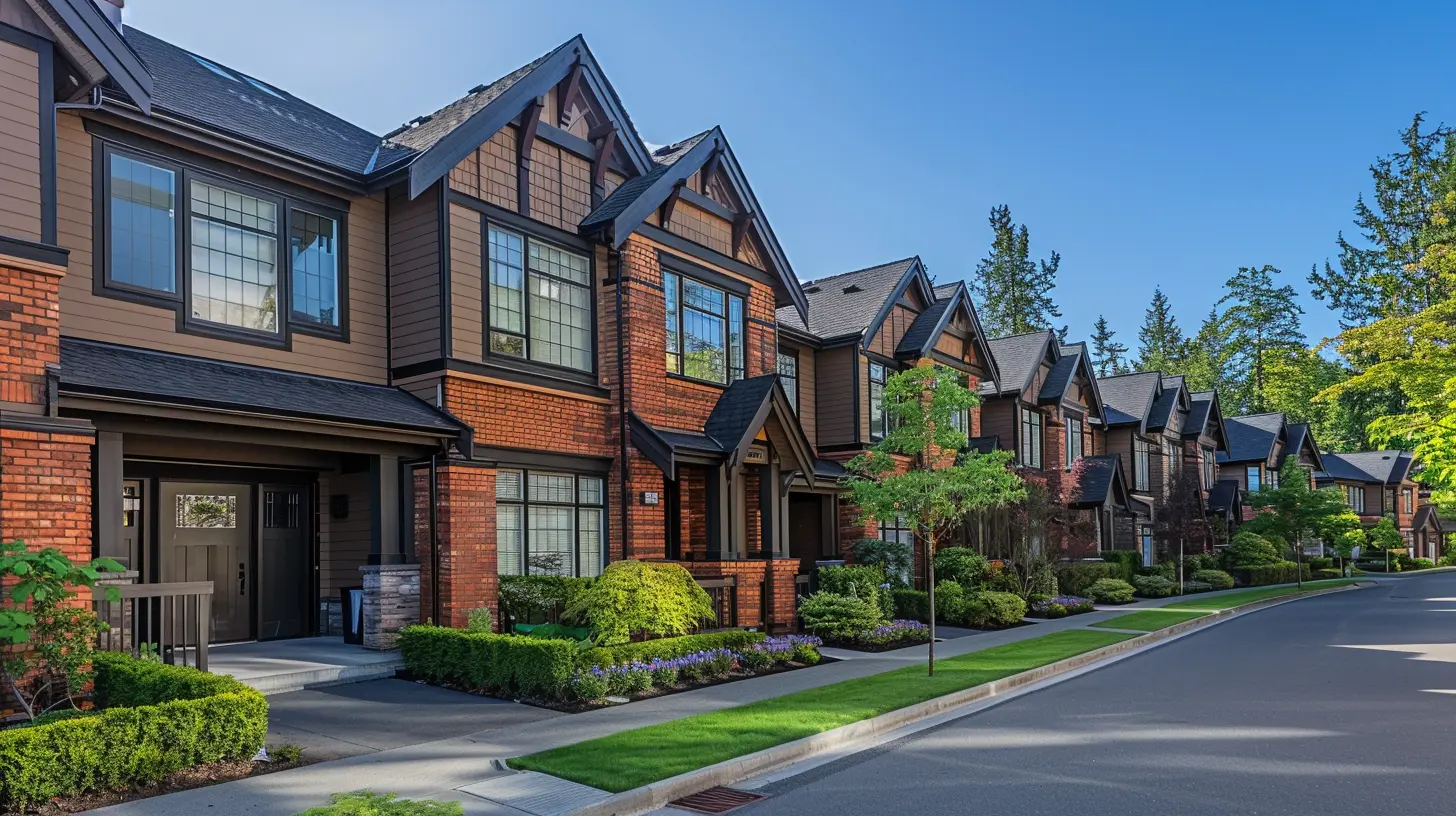16 April 2025
Investing in rental properties can be one of the smartest financial moves you ever make. Whether you’re looking to score some extra income or build wealth through real estate, rental properties are a solid way to grow your portfolio. But let’s be honest—success in this game often hinges on understanding how to finance your purchase, and that's where mortgage loans for rental properties come into play.
If you’re feeling a little overwhelmed by terms like “down payments,” “interest rates,” or “loan requirements,” don’t stress. You’re definitely not alone. In this article, we’re going to break everything down so that it all makes sense. Ready? Let’s dive in. 
Why Rental Property Investments Are Worth It
Before we jump into the nitty-gritty of mortgage loans, let’s take a moment to appreciate why rental properties are an investor's playground. Picture this: you're earning passive income every month while potentially watching your property value climb over time. Sounds like a dream, doesn’t it?Rental properties provide a unique opportunity to create multiple streams of income—think rental payments and tax advantages. And if you treat your property like a business, over time, it might even pay for itself. But here’s the thing: real estate isn’t cheap. That’s why understanding how to leverage mortgage loans is critical to your success. 
The Basics: What Is a Mortgage Loan for a Rental Property?
Okay, let’s start with the fundamentals. A mortgage loan for a rental property is essentially a loan you take out to finance the purchase of a property you intend to rent out instead of living in yourself. Pretty straightforward, right?But here's the catch: getting approved for these kinds of loans can be trickier than getting a mortgage for a primary residence. Why? Well, lenders see rental properties as riskier. If financial trouble comes knocking, most people prioritize paying their primary home mortgage over their rental property mortgage. Makes sense when you think about it.
As a result, lenders often impose stricter requirements to ensure you’re capable of paying off the loan even if things go south with your tenant situation. 
Key Differences From a Primary Residence Mortgage
You might assume that the process for getting a rental property mortgage is the same as buying your first home. But nope—it’s a whole different ball game. Here’s how they differ:1. Higher Down Payments
Unlike the 3% to 5% down payments often seen for primary homes, most lenders require at least a 15% to 25% down payment for rental properties. Why? Because it’s their way of reducing risk.2. Higher Interest Rates
Expect to see slightly higher interest rates for rental property loans. Lenders slap on a risk premium, which means you could pay anywhere from 0.5% to 1% more than you’d pay for a primary residence loan.3. Stricter Qualification Criteria
Own a home already? Great. But to get a rental property loan, lenders will also scrutinize your debt-to-income (DTI) ratio, credit score, and cash reserves. Think of this step as them checking your “financial health.”
Types of Mortgage Loans for Rental Properties
Here’s the good news: you have options. Let’s unpack the most common types of mortgage loans available to rental property investors.1. Conventional Loans
If you’ve already purchased a home, you’re probably familiar with conventional loans. They’re the most common option, but you’ll need a solid credit score (usually 620 or higher) and that hefty down payment we mentioned earlier.2. FHA Loans (With a Twist)
FHA loans are typically designed for primary residences, but here’s a little loophole—if you purchase a multi-unit property (like a duplex), live in one unit, and rent out the other, you might qualify for an FHA loan. Just bear in mind that you’ll still need to meet those FHA requirements.3. Portfolio Loans
Think of these as customizable loans offered by specific lenders who are willing to work outside the rigid structure of traditional mortgage products. Portfolio loans often come with more lenient terms, but beware—they might come at the cost of higher interest rates.4. Commercial Loans
If you’re looking to invest in properties with five or more units, you’ll likely need a commercial loan. These are structured differently than typical residential loans, often leaning more heavily on the property’s income potential.5. Hard Money Loans
Feeling adventurous? Hard money loans are short-term loans often used by house flippers. While they’re convenient and fast, they come with sky-high interest rates. These might not be ideal for those looking to hold onto their properties long-term.How to Qualify for a Rental Property Mortgage
Alright, so you’re sold on the idea of buying a rental property. Now what? Well, qualifying for a loan is your next big step. Here’s what lenders look for:1. A Strong Credit Score
If your credit score isn’t hovering in the 700+ range, now’s the time to work on improving it. A higher score not only increases your chances of approval but also nabs you better interest rates.2. A Solid Down Payment
As we mentioned earlier, plan to bring at least 15% to 25% of the purchase price to the table. Pro tip: the bigger your down payment, the lower your monthly payments—and lenders love to see that.3. Low Debt-to-Income (DTI) Ratio
Your DTI ratio measures how much of your monthly income goes towards paying debts. Most lenders prefer a DTI ratio under 43%, but some may go as high as 50% (depending on the loan type).4. Cash Reserves
Many lenders require you to have cash reserves that can cover at least 6 months’ worth of mortgage payments. Think of this as your rainy-day fund.5. Proof of Rental Income
Here’s something a lot of new investors don’t know—lenders may consider potential rental income when evaluating your loan application. However, they’ll want evidence (like an appraisal or comparable market rents) to back it up.Pros and Cons of Mortgage Loans for Rental Properties
Every financial decision has its ups and downs. Here’s a candid look at the pros and cons of using mortgage loans to invest in rental properties:Pros:
- Leverage Your Money: You don’t need to fork over the full price of the property upfront.- Tax Benefits: Mortgage interest and property expenses can often be deducted come tax season.
- Build Wealth Over Time: Your tenants help you pay off the loan while the property (hopefully) appreciates in value.
Cons:
- Risk of Vacancy: If your property sits empty, you’re still on the hook for mortgage payments.- Higher Costs: Between the down payment and interest rates, rental property loans require significant upfront capital.
- Management Stress: Being a landlord isn’t always sunshine and rainbows.
Tips for Securing the Best Loan
Want to stack the odds in your favor? Here are a few tips for snagging the best mortgage loan for your rental property:1. Shop Around
Don’t just settle for the first lender you talk to. Compare rates, terms, and fees to ensure you’re getting a good deal.2. Boost Your Credit Score
A little effort goes a long way. Paying down debt or correcting errors on your credit report can make a big difference.3. Save Aggressively
The bigger your down payment, the better your loan terms. Plus, having extra cash reserves can be a lifesaver during unexpected situations.4. Work With a Real Estate Professional
Don’t underestimate the value of expert advice. A real estate agent or mortgage broker can guide you through the process and help you avoid pitfalls.The Bottom Line
Getting a mortgage loan for a rental property might seem like a daunting task, but remember—you’re not alone. With a little preparation and a solid understanding of the process, you’ll be well on your way to locking down that dream investment.Yes, there are hurdles like higher costs and stricter requirements, but if you play your cards right, rental property investment can be an incredibly rewarding journey. So, are you ready to take the leap?





Ezra Warren
Unlock your investment potential! Understanding mortgage loans for rental properties can empower you to build wealth. Embrace the journey, stay informed, and watch your financial dreams flourish! Happy investing!
April 19, 2025 at 8:21 PM